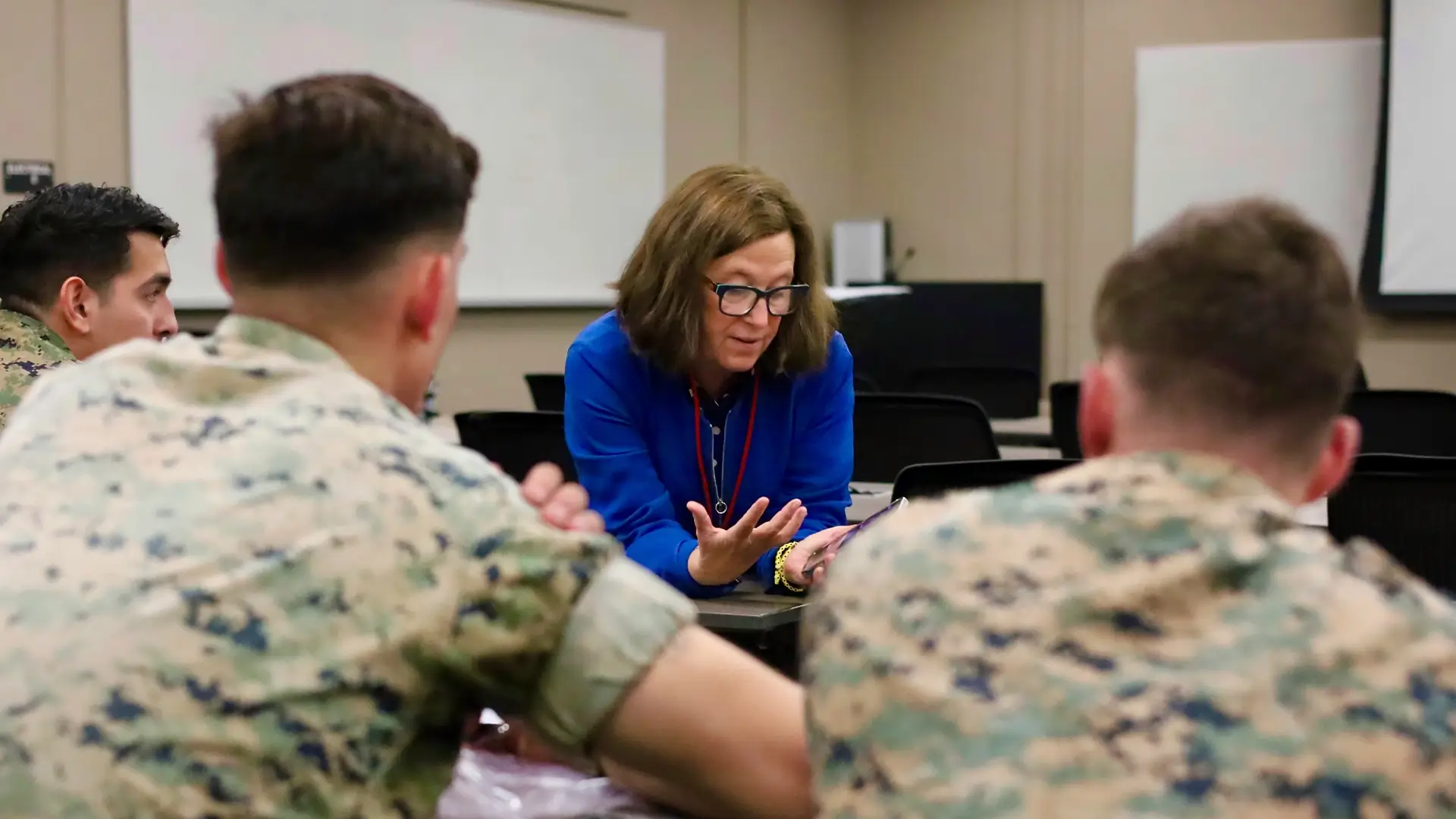Renowned Body Computing Pioneer to Share Insights on Data-Driven Health and Human Performance
The USC Center for Body Computing Executive Director and interventional cardiologist at the Keck School of Medicine of USC, Dr. Leslie Saxon, will participate in the upcoming panel “The Edge of Performance: AI, Health, and the Future of Sport” at the AI for Good Global Summit.
With unparalleled expertise in wireless diagnostics and wearable computing technology, she brings groundbreaking insights to the discussion. As a pioneer in body computing research, she has dedicated her career to revolutionizing how we understand and optimize human performance through continuous, real-time health monitoring.
Transforming “Sickcare” to “Healthcare”
Dr. Saxon’s groundbreaking work centers on what she calls “life care” – a holistic approach that integrates physiology, psychology, and social factors to provide unprecedented insights into human health and performance. Her research challenges traditional medical paradigms by moving from episodic care to continuous monitoring, revealing the dynamic relationship between health and disease states that conventional medical definitions often miss.
“Everyone’s health and human performance is different,” Dr. Saxon explains in her recent essay on body computing research. “Medical definitions of health or disease are very limited, and there’s a lot of functional fluidity between health and disease states.”
Military-Grade Innovation for Elite Performance
At the USC Center for Body Computing, a unit of USC’s Institute for Creative Technologies, Dr. Saxon has developed the Lightning Platform – a cyber-secure system that integrates medical-grade sensors to create continuous, personalized health records. This DoD-funded research, totaling $12 million over eight years, has enrolled over 600 active-duty service members across four military bases.
The platform goes beyond traditional health monitoring by incorporating validated cognitive assessments, sleep analysis, and real-time feedback systems. Service members receive immediate insights into how factors like sleep deprivation affect their cognitive performance, often revealing disconnects between how they feel and their actual functional capacity. This real-time awareness accelerates behavior change and injury prevention.
From Military to Athletes to Everyone
Dr. Saxon’s research extends beyond military applications to professional and collegiate athletes, and ultimately to anyone seeking to optimize their health and performance. Her approach emphasizes the democratization of elite performance insights, making cutting-edge health technology accessible to diverse populations.
The Body Computing lab’s innovative use of gamification and Instagram-like video delivery systems ensures that complex health data becomes actionable and engaging for users, representing a significant shift from traditional medical communication methods.
A Voice for the Future of Sports Technology
At the AI for Good Summit panel, Dr. Saxon will explore how AI is redefining athletic performance limits through precision training, injury prevention, and long-term health monitoring. Her unique perspective bridges clinical medicine, advanced technology, and human performance optimization – making her an ideal voice for discussions about the intersection of AI, health, and sport.
Key Insights Dr. Saxon Will Share
Understanding Humans as Interconnected Systems Dr. Saxon challenges traditional medical silos, emphasizing that “the brain, behavior, metabolism, and physiology are all interconnected.” Her research has revealed groundbreaking connections, such as identifying insulin resistance as a new biomarker of chronic low-level brain injury through continuous glucose monitoring. This systemic approach has shown that fitness and disciplined health habits can protect against both cognitive and metabolic degradation.
Precision Medicine for Individual Performance Her work demonstrates that “there is no average person” – in military studies, 25% of fit operators had silent insulin resistance detectable only through continuous monitoring. This personalized approach replaces population-based recommendations with dynamic, individualized health intelligence, crucial for athletic performance where personalized nutrition directly affects recovery, endurance, and injury prevention.
LA 2028 Olympics as a Living Laboratory Dr. Saxon views the upcoming Los Angeles Olympics as a catalyst for advancing AI in athletics. Through her Lightning Pulse platform using Apple Watch and AI, she’s developing continuous readiness and recovery intelligence that will be tested at Olympic scale. This represents the next generation of human-machine symbiosis in health, performance, and fan connection.
The LifeCare Vision Her vision for the future includes athletes wearing intelligent sensors that capture glucose, heart rate variability, sleep, and cognition data, with AI analyzing information in real-time to deliver instant recovery, nutrition, and training recommendations. This “LifeCare” approach means persistent, personalized, real-time health intelligence designed around the user.
The panel will address advanced analytics in team environments, technological infrastructure for global sporting events, and the clinical dimensions of connected health systems as sport evolves toward an increasingly data-driven future.
With over 200 peer-reviewed publications and recognition including the 2019 California Science Center Women of the Year award, Dr. Saxon continues to shape the future of personalized medicine and human performance optimization on platforms ranging from CES and TEDMED to major media outlets including the Wall Street Journal, New York Times, and BBC.
The AI for Good Global Summit panel “The Edge of Performance: AI, Health, and the Future of Sport” will explore how artificial intelligence is transforming athletic performance, injury prevention, and health monitoring across all levels of sport. The summit takes place July 8-11, 2025 in Geneva, Switzerland. Registration is free and available here.
//
